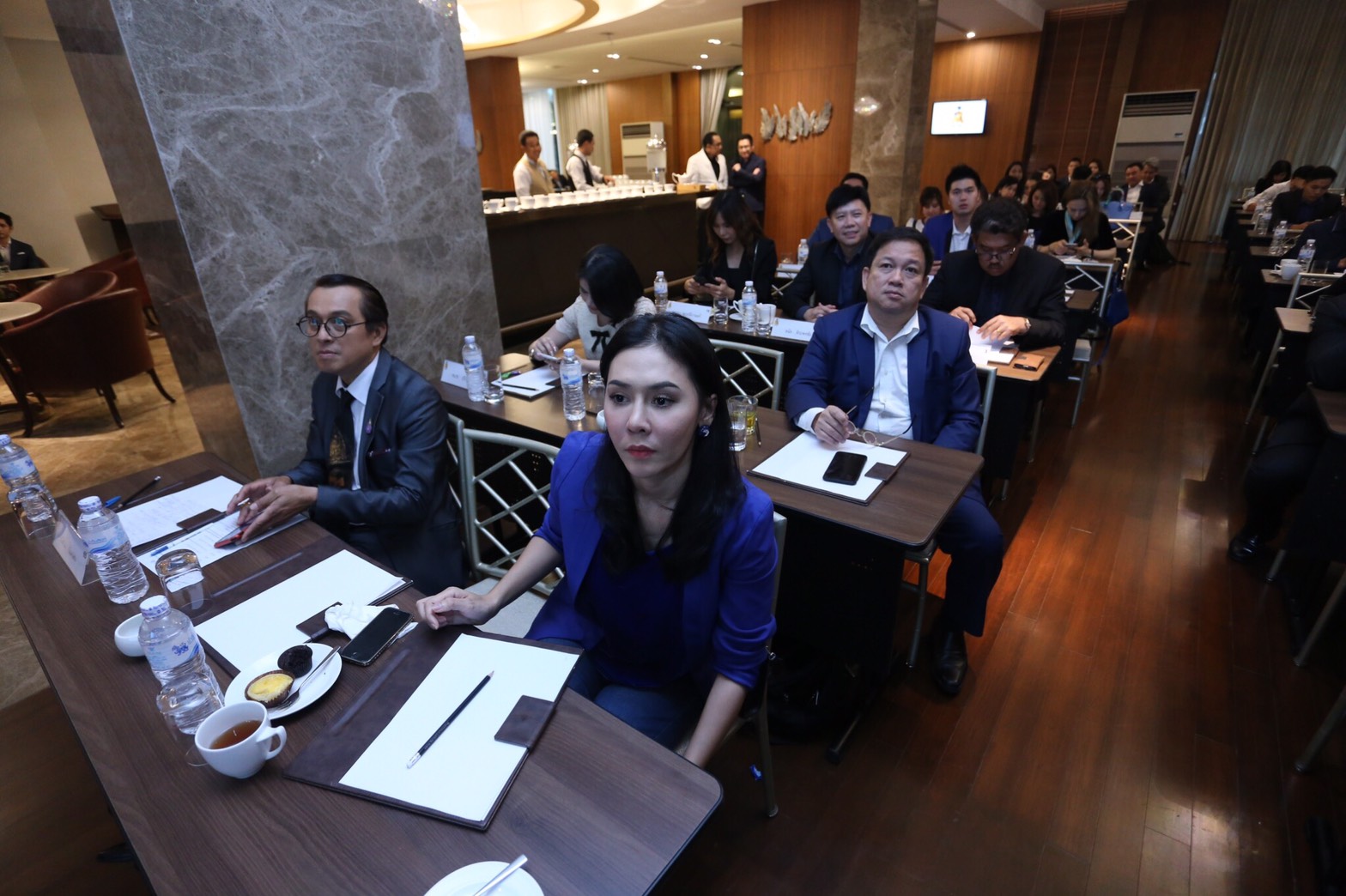เปิดประตูธุรกิจสู่ยุคดิจิตอล มองโอกาสใน อาเซียน
Opening the Door of Opportunities towards the Digital Era, Exploring Opportunities in Asean
A summary of the course “Asean Treasures: Opportunities & Challenges (ATOC)”
In the dynamic and ever-changing world, most people across the globe are vigilant and alert to catch up with changing situations. On the world stage, countries in each region are grouped together to establish economic ties. Ten countries in the Southeast Asia also have established an organization called the Association of Southeast Asian Nations or Asean.
The course “Asean Treasures: Opportunities & Challenges (ATOC)” is aimed at fulfilling knowledge and understandings to participants, so that they can adapt themselves to the Asean entrepreneurial environment. On August 24, 2017, Mr.Wu Hua Chun, Gold Supplier of Alibaba.com in Thailand and General Manager of Sawatdee Group gave a fascinating lecture on Doing Business in Asean continent/China. Interesting points from this lecture are as follows:
The Changing of Old Things and the Advent of New Trends
Presently, our world is in the Industry 4.0 era, as the Thai government is pushing forward the country to enter the 4.0 era as stated in its economic policy. Historically, the first era of the world transition tothe Industry 1.0 era occurred during the period of 1750-1850 with the coming of the Industrial Revolution of the steam power era. This era brought the absolute change in terms of power in manufacturing process going from hand production to machines.Coal was used to power the steam engines. Next is the Industry 2.0 era or the electric machinery era. A lot of machines were invented and the electricity was used to drive mass production instead of steam power.
The Industry 3.0 era or Computer era is characterized by the use of electronics and automation in mass production which enhance flexibility and accuracy. After the Industry 3.0 era, here comes the Industry 4.0 era which is the era of internet, Big Data and Artificial Intelligence or AI. Honestly, we cannot say that we have fully reached the Industry 4.0 era because AI still does not have clear role in this change. However, several experts and academics view that within next ten years, AI will certainly replace humans in many aspects in the workplace.

Challenges that Come with Changes
Each Industry era shows us the emergence of two powers: the power of use and the power of possession. All powerful nations and rich nations have at least one of these powers, for example, the United Arab Emirates possess oil which is the UAE’s source of wealth until now.
Mr. Wu Hua Chun further said that persons who have both power of use and power of possession can have influence on the global stage. He cited Mr. Masayoshi Son, the owner of Softbank. His company has invested in several major internet-based businesses such as Grab, Yahoo. Moreover, Son is the major shareholder of Alibaba. Other distinctive investments of Softbank are OneWeb, a satellite company that can provide global internet connections via only one network and iFlytek, a robot and AI company which developed AI language translation device for the world leading company like SHARP. These are challenges and adaptation in order to keep up with changes in the business world in the digital age.

Adapting to the world trends (Response)
Mr. Wu Hua Chun stated that the United States, Israel and China are the world’s largest users of digital platforms and service on internet. Nowadays, China has seen more than 12,000 start-ups, making China one of the world’s leading start-up hubs in the world. Work values of the young who study in universities are also changing. They tend to start their own start-ups. This may change the type of work in the future accordingly.
Case Study: Alibaba, the business tool in the Industry 4.0 era
Each business has its gap. In order to fill this gap, Alibaba, the largest e-commerce giant in China and one of the leading e-commerce companies in the world has created a corporate structure that covers all services. The reason that helpsAlibaba continue to grow at a strong pace is Alibaba Ecosystem Empire that covers all aspects, namely Taobao.com, the largest online shopping website in China, Tmall.com, the retail platform, Juhuasuan.com, a group shopping website, 1688.com, an online wholesale platform, Alimama.com, an online marketing platform, Aliyun.com, a cloud computing service of Alibaba, and AliExpress, a logistics and shipping service. Services that cover all aspects of online shopping make Alibaba the most popular e-commerce website in China. Its empire improves China’s households and GDP by creating jobs and tremendous revenues to the country.

The Impending Future
If power is the tool that has driven the world from the past until now, power at the present time is Big Data which is a large and complex data. Technological developers are trying to invent AI that can keep Big Data. When there is enough data accompanying with analyzing and processing by a computer, AI will be more effective than one can imagine. Those who completely possess and utilize Big Data may hold the success of their businesses in the future. Next to Big Data, another importance is the security in keeping Big Data. In the future, the Big Data Security business will be widespread.
Apart from Big Data, it is expected that there will be the emergence of necessary future resource. The economic system may no longer have the same structure, the way in doing business will also follow suit.
Besides from discussing the five aspects which are basis of changes in the Industry 4.0 era, participants of the ATOC # 1 will have a chance to visit Alibaba headquarters in China to exchange knowledge and learn about the adaptation for businesses in the Digital Age.
Information from the lecture on the business opportunities in Asean,
Doing Business in Asean Continent/China by Mr Wu
The course “Asean Treasures: Opportunities & Challenges (ATOC)”
August 24, 2017
บทความโดย : TerraBKK เคล็ดลับการลงทุน
TerraBKK ค้นหาบ้านดี คุ้มค่า ราคาถูก











